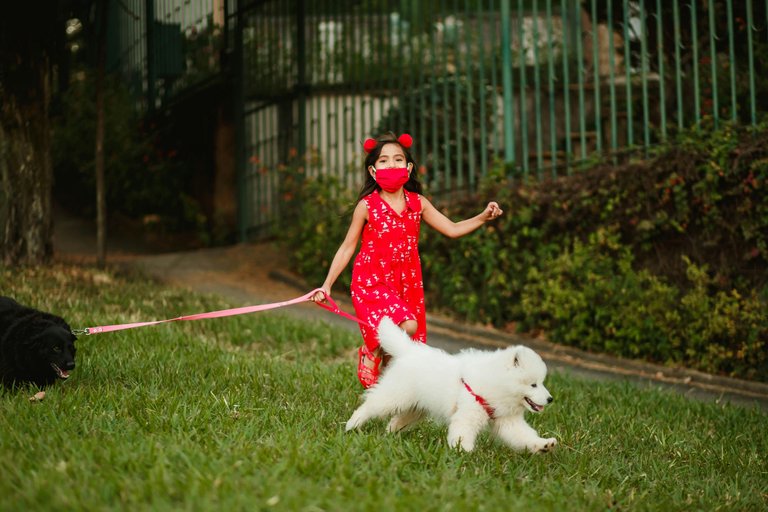Do you remember the entire coronavirus situation that kept us all locked up in our houses for a while and made this working-from-home thing much more effective? It can affect our dear pets as well, we have a case of canine coronavirus.
rawpixel.com
Yes buddies, canine coronavirus disease, known as CCoV, is a highly infectious intestinal disease that affects dogs, especially puppies.
Coronavirus infection in a dog is often restricted to the enteric tract, it is a self-limiting type of infection and it produces only mild or asymptomatic forms of enteritis. The virus belongs to the Coronaviridae family and the name is gotten from the fact that, when it is viewed from above under an electron microscope, the virus has a ring of projections that has an appearance of a coront, or a small crown that is made of ornaments and fixed on a metal-ring.
Coronaviruses are large, enveloped, positive-stranded RNA viruses. There are everal types of coronavirus, each affecting different species of animals including humans.
In dogs, three different coronaviruses have been identified, type I and type II are classified under group I coronavirus, and their evolution is closely related to feline coronavirus (FCov).
Most times, cases of canine coronavirus are contracted through oral contact with infected fecal matter. A dog may also pick up the infection through the consumption of meals from an infected bowl or through direct contact with another infectd dog.
Living in an unhealthy /unclean environment makes the transmission of coronavirus very possible. The period of incubation from ingestion to clinical stage takes about 1-4 days, illness takes about 2-10 days in most dogs. Secondary infections that is posible through parasites, bacteria, and other viruses like adenovirus or parvovirus may develop and prolong illness. Dogs have the capacity to be carriers of the disease for up to 6 months after infection.
Most canine coronavirus infections are sub-clinical cases and they produce just few clinical signs when a dog is affected, but sometimes, more severe symptoms are present especially when it affect young puppies. Upon infection, we would look out for; diarrhea, accompanied by lethargy and decreased appetite. The stool is a loose one with a foul smell and orange-tint color, sometimes it may contain mucus or blood, and if infection is a mixed one, probably a case of parvovirus and coronavirus, the illness would be more severe.

pexels.com
In the Unites States, there are two main typs of canine coronavirus, we have enteric and respiratory. The enteric type is the one that gets to spread through feces and then causes damage to the cells that lines the gastrointestinal tract.
Respiratory canine coronavirus is the other type, it spreads through the air and enters into the lungs, this type is more of a largre respiratory disease complex in dogs and it causes sneezing, coughing, and a difficult breathing pattern.
There is no particular treatment for canine coronavirus, even antibiotics do not work against the virus, but may be useful in the control of secondary bacterial infections. In order to help with the diarrha, food should be withheld for about 24 hours and then reintroduced bit by bit until diarrhea ceases completely. A dehydrated patient may need intravenous fluids to help correct the fluid and electrolyte imbalances. Through it all, seeking the help of a medical expert early enough is a vital tool for saving the life and the health of your pet.
Lukily, there is an available vaccine against canine coronavirus, it is however not recommendd for all dogs, as it would only be administered based on the lifestyle and risk assessment of your dog. This vaccine would only cover for the CCoV type of coronavirus, and it does not cover for the prevention of COVID-19.
Certainly, pet owners would be worried about the possibility of canine coronavirus being passed down to humans, but based on a report submitted in May 2021, on this issue, it was clearly stated that the canine coronavirus is not the same as the one affecting humans.
There happens to be correlation based on the result, but the virus does not appear to have any significant human health concern.
